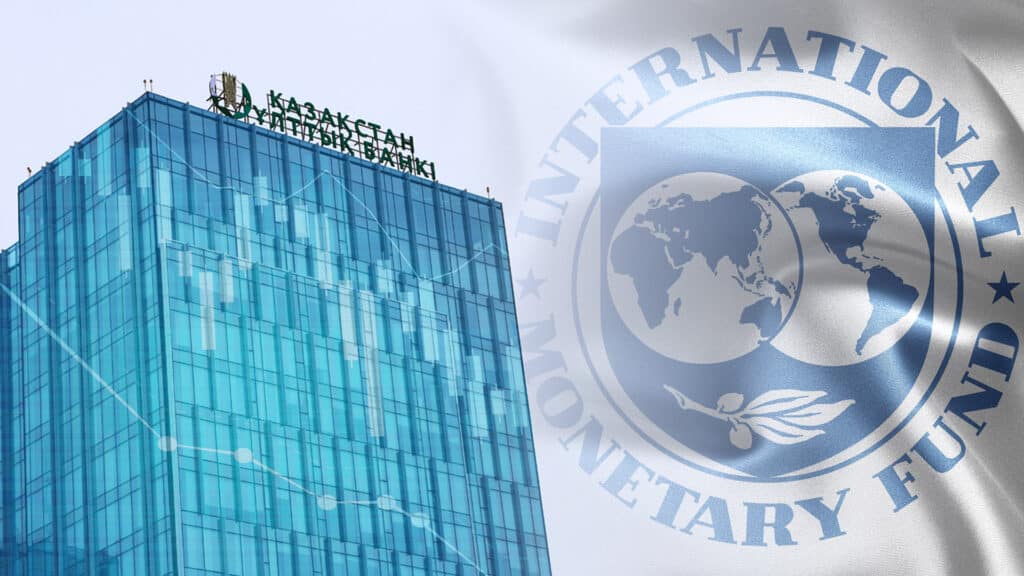IMF praises the National Bank of Kazakhstan for cutting base rate

The National Bank of Kazakhstan «fully understands» the risks associated with the softening of the monetary policy that has been happening since August 2023. According to Nicolas Blanchet, head of the International Monetary Fund (IMF) Mission for Kazakhstan, the lowering of the base rate was the right decision, although the previous recommendation of the fund urged the country’s government to stick to a more balanced policy.
Since the beginning of the year, the regulator has cut the base rate twice by 100 basis points in total. Interestingly, in November 2023, the IMF recommended Kazakhstan not to rush with the softening of the monetary policy and do that only when inflation is at a targeted level of 5%. At the end of January 2024, the annual price increase reached 9.5%.
«As inflation expectations are still quite high, it is too early to announce victory over inflation. However, Kazakhstan has been carrying out this careful policy since December. The current monetary policy is quite tough; this is the right thing. The latest report on inflation is a quite positive result of bold actions. Our recommendation was to stay careful while softening the monetary policy. Based on what the head of the National Bank [Timur Suleimenov] said last week, the regulator fully understands all the risks and ensures that the public is aware of them,» Blanchet said.
According to the IMF, the National Bank of Kazakhstan has been doing the right things related to the lowering of inflation and securing the monetary policy since the end of 2022. On February 23, the regulator cut the rate from 15.25% to 14.75%. The move was driven by the lowering of inflation expectations (they’ve been decreasing for three months in a row) and global prices for food and energy carriers. The National Bank said that the base rate is likely to stay at the current level in the near future because room «for further softening of the monetary policy is significantly limited.» The next meeting on the monetary policy is scheduled for April 12, 2024.
For some experts, the lowering of the rate wasn’t a surprise as they made very accurate predictions for the move. Two-thirds of experts interviewed by the Association of Financiers of Kazakhstan in February thought that the base rate would be reduced to 15%. The rest of the experts expected the rate to be cut to 14.75%. For instance, analysts from Jusan Invest were among these experts, although they said that they would prefer the rate to stay at the same level.
The latest macroeconomic survey by the National Bank showed that the vast majority of the financial market is expecting the base rate to be lowered to 13.8% by the end of 2024. The median value for the base rate forecast in 2025 and 2026 is at 10.5% and 9%, respectively.
Analysts from the Applied Economics Research Center (AERC) believe that the lowering of the bare rate was made too early. They doubt if the regulator is committed to the goal of lowering inflation: currently, annual inflation is still twice as high as the target. The National Bank predicts inflation next year at 7.5% to 9.5% on average.
In May, the government is going to switch to another method of calculating inflation; the IMF will help Kazakhstan with this. The country will calculate the monthly inflation rate based on data over a three-week period, not just one week as is happening now; it will introduce more representative sampling for analysis as well as experimental indexes for specific types of goods.
The current traditional system for monitoring inflation is complicated by the time and resource-consuming process of price indices gathering and analyzing, according to the Bureau of National Statistics. The government wants to introduce a national catalog of goods for more detailed and transparent monitoring of prices for socially important food products. In 2022, Kazakhstan reported inflation at 20.3%, a record high for the country. At the time, the base rate of the National Bank was also at its peak of 16.75%. In August 2023, the regulator cut the rate to 16.50% for the first time after a long period of keeping it at the same level. Since then, the rate has been lowered five times.

